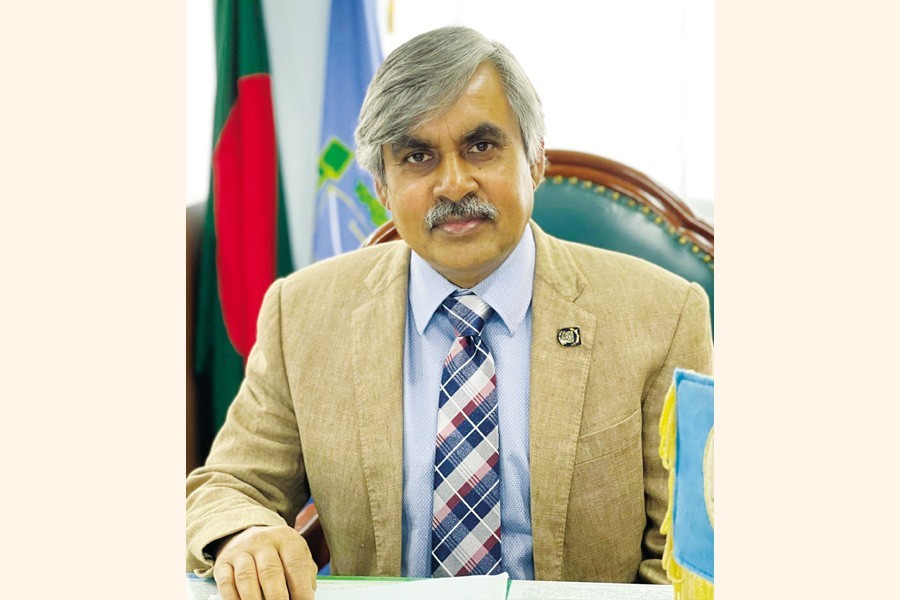The government should invest more in research and development (R&D) in the agriculture sector and agro-processing industry, in particular, to create a strong rural economy, Prof Dr Lutful Hassan, vice-chancellor of Bangladesh Agricultural University (BAU) told the FE recently.
The development of the agro-processing industry is necessary not only to make the preservation and processing of a variety of farm produce fast and scientific but also to increase the income of the farmers and create employment opportunities in rural areas, he said in an exclusive interview with this paper.
In addition to making efforts to boost the production of both food and cash crops, the focus needs to be there in the budget and beyond, Dr Hassan said, on the development of livestock and aquaculture.
These are the areas that have the potential of creating young entrepreneurs, he said, adding the government should also ensure formal credit and policy support to emerging rural entrepreneurs.
Asked to comment on the adverse effect of the ongoing Covid-pandemic on the agricultural sector, the BAU VC said like most other sectors of the economy, agriculture is also bearing the brunt. He said rice growers during last Aman season got better prices but counted losses in the case of non-rice farm produce.
He said the poultry and dairy sub-sectors were hit badly during the 66-day 'lockdown' last year. Many small-scale farms were forced out of business during that period, he added.
Dr Hassan lauded some of the measures taken in the budget for the current financial year to help the pandemic-hit agricultural sector. The budget for the current FY has an allocation of Tk.32 billion for farm mechanisation, Tk,90 billion as fertilizer subsidy, among others, he said.
Besides, he said, the government has made available stimulus packages for the sector to help it overcome the disruption and losses caused by the pandemic.
He said budgetary policies have been paying the dividend. This is evident from the fact that the country even amid pandemic became the third-largest rice-producing country in the world, after China and India in 2020.
In this context, he pointed out the gradual increase in food production in the country since independence in 1971 when the total food output was only 10 million tonnes. The production in 2020 was nearly 36 million tonnes, Dr Hassan noted.
Asked what should be done to boost the growth of the country's farm sector, Dr Hassan said although the relative contribution of agriculture to the country's GDP has been declining, the sector remains the 'main vehicle' to reduce poverty and ensure food security. It is also the major supplier of raw materials of agro-based industries, he added.
Presenting the scorecard of the sector, the BAU VC said, the country is now one of the major producers of fish, livestock, fruit and vegetables in the world.
But, he said, the problem of marketing and distribution is bedevilling the sector. He said the policy should focus on resolving this particular problem and making easier the transportation, logistics and preservation of perishable farm produce.
The government should also ensure that none manipulates the market and deprive the growers of a fair price.
Dr Hassan maintained that contradiction in a few provisions of the income tax law and rules and the finance act has been depriving the farmers of tax benefits.
The finance act of 2020 offers special incentive as far as the income of farmers is concerned. But much of it is being taken away through the imposition of source tax on payments made to them under section 52 of the Income Tax ordinance of 1984 and rule 16 thereof.
He suggested extending greater tax benefit to the farmers and stop deducting source tax from them.


